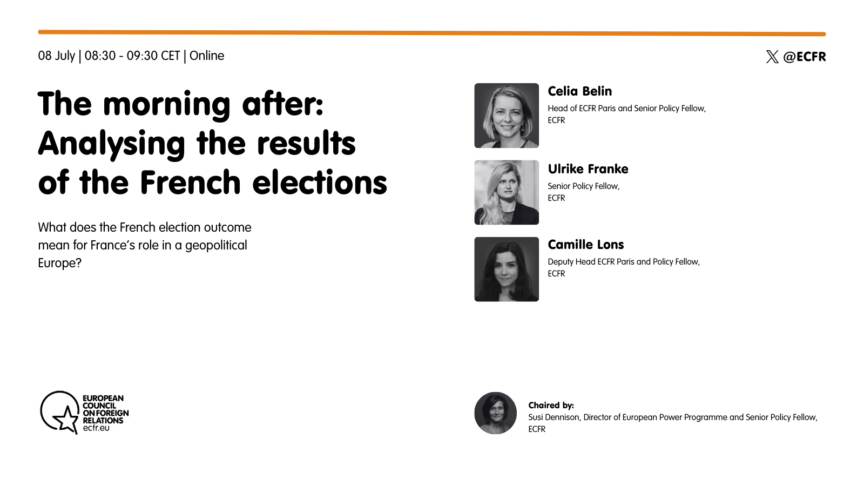
The Morning After: Analysing the Results of the French Election
As France discovers the new making of its national assembly, this webinar will analyse the election results and reflect on their impact on a geopolitical…

As France discovers the new making of its national assembly, this webinar will analyse the election results and reflect on their impact on a geopolitical…
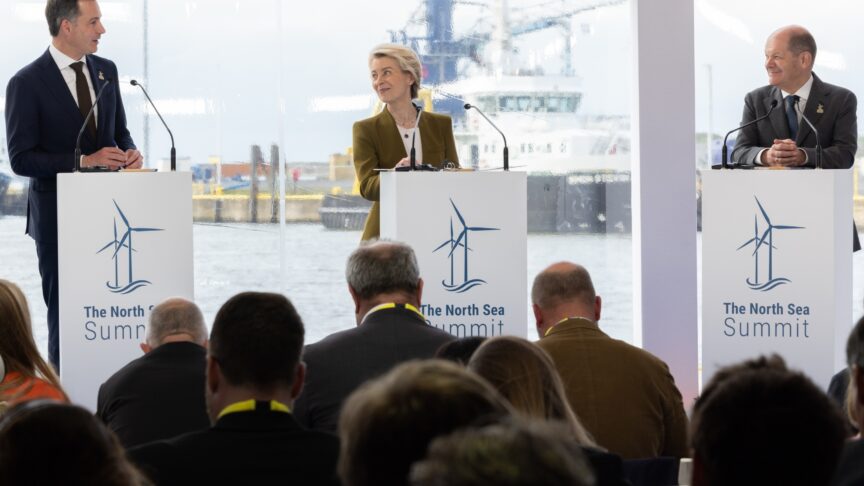
Since Russia’s invasion of Ukraine, the EU and its member states have intensified their energy diplomacy, moving away from Russian supplies and towards more secure – and greener – alternatives. But to do so efficiently, greater coordination at the EU-level is needed
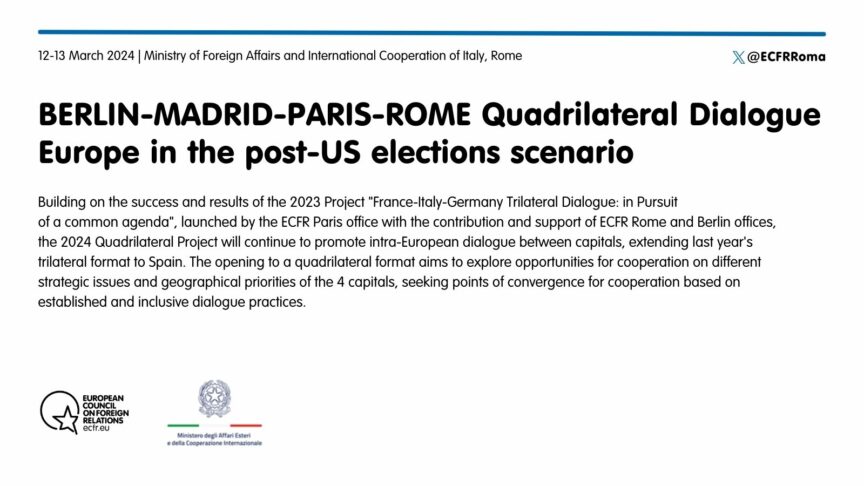
Building on the success and results of the 2023 Project “France-Italy-Germany Trilateral Dialogue: in Pursuit of a common agenda”, the 2024 Quadrilateral Project will continue to promote intra-European dialogue between capitals, extending last year’s trilateral format to Spain
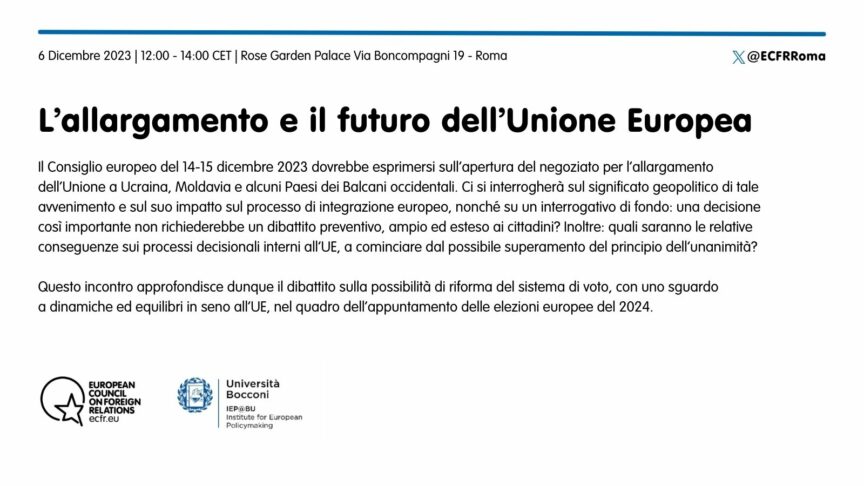
Secondo appuntamento di una serie di tre working lunch realizzati congiuntamente da ECFR Roma, SDA Bocconi e l’Institute for European Policymaking @ Bocconi University
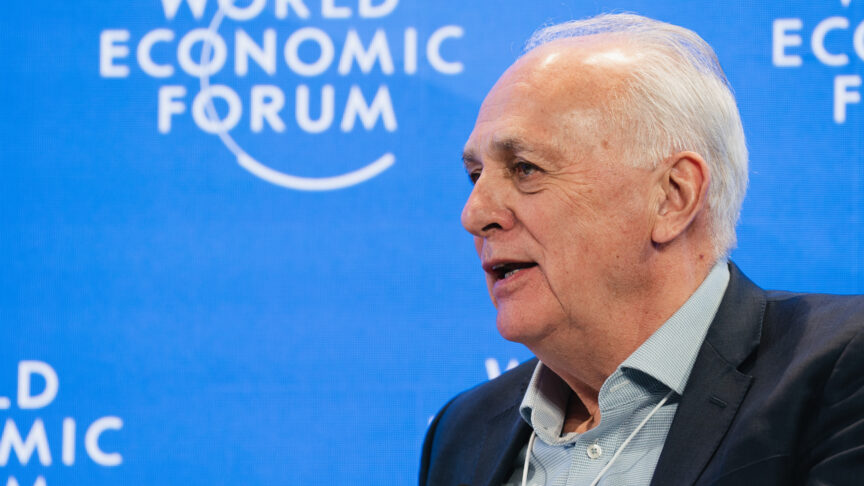
Mark Leonard welcomes Mark Malloch-Brown to discuss the future of the open society model in Europe and the world
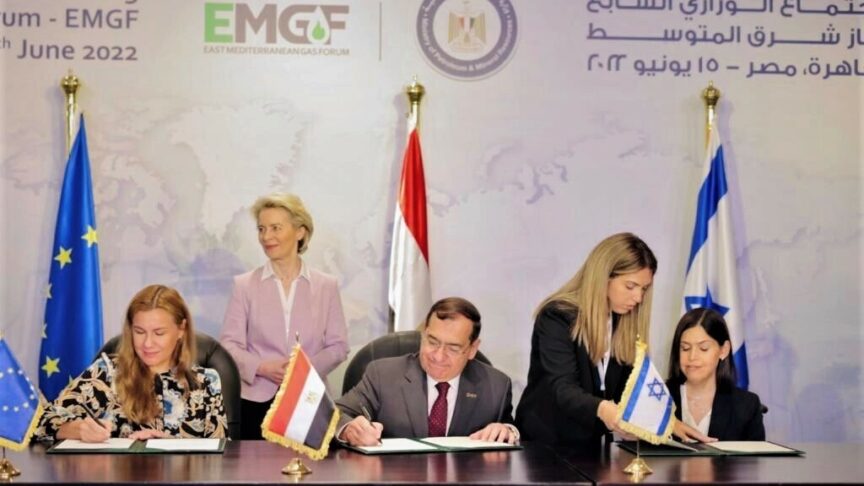
The war in Ukraine has forced Europeans to keep the lights on through adopting a far more strategic approach to their energy security. ECFR’s Energy Deals Tracker has monitored the success of the EU’s energy diversification – and identifies challenges ahead
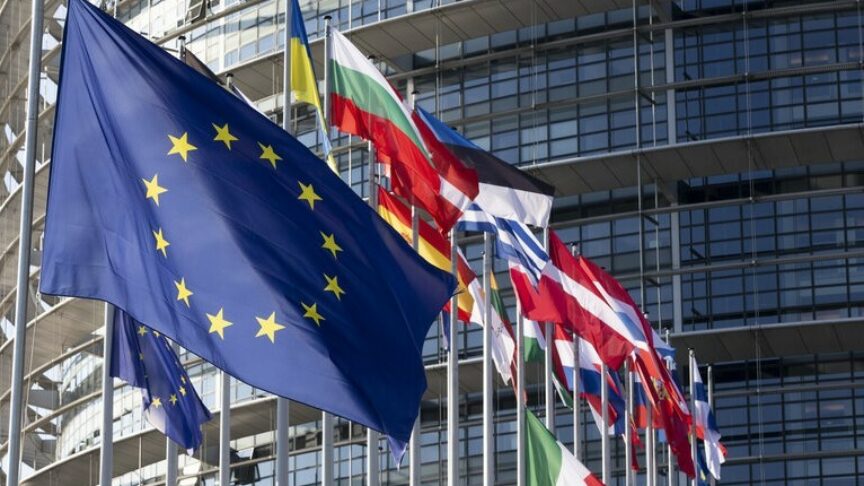
It is time for the EU to burnish its foreign policy credentials by setting out concrete plans for the next round of enlargement
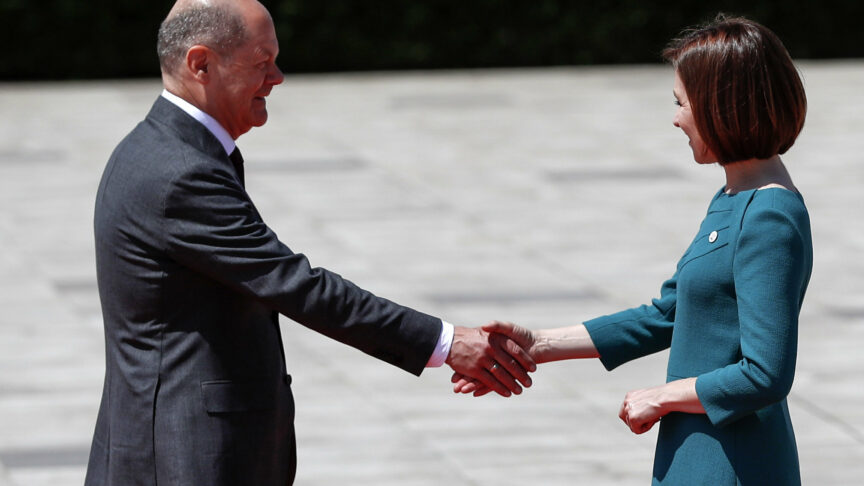
As Europe’s leaders meet in Moldova, the potential of the European Political Community to contribute to security and foster connection across the continent is becoming ever clearer
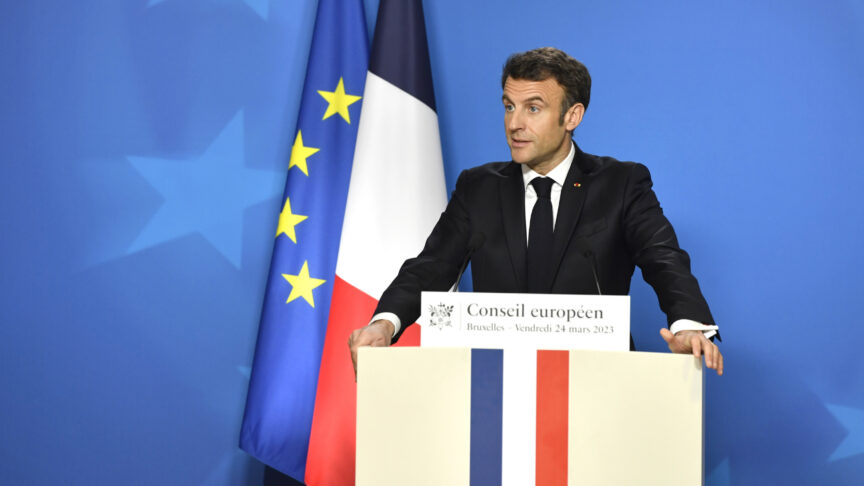
Last week, France’s president Emmanuel Macron threw the EU bubble into turmoil by suggesting that Europe should not become the United States’ “vassal” over Taiwan
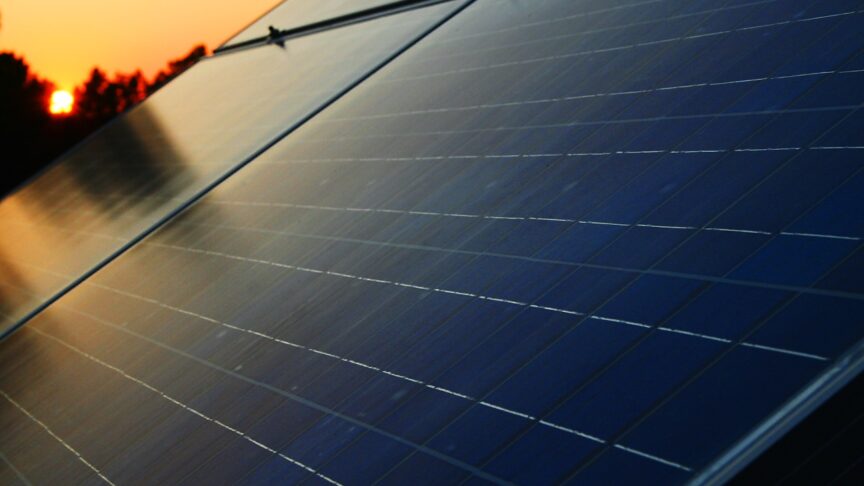
Russia’s war in Ukraine has exposed the link between energy and security policy. Renewable energies can help Germany gain energy sovereignty – and protect itself from security threats

The bloc should reframe the international debate on energy security to focus on clean energy resources and efficiency, engaging in the market reforms needed to incentivise this shift

ECFR’s policy experts examine what the Taliban takeover means for countries and regions around the world: Europe, the US, the Middle East, Russia, China, Iran, Turkey, and the Sahel
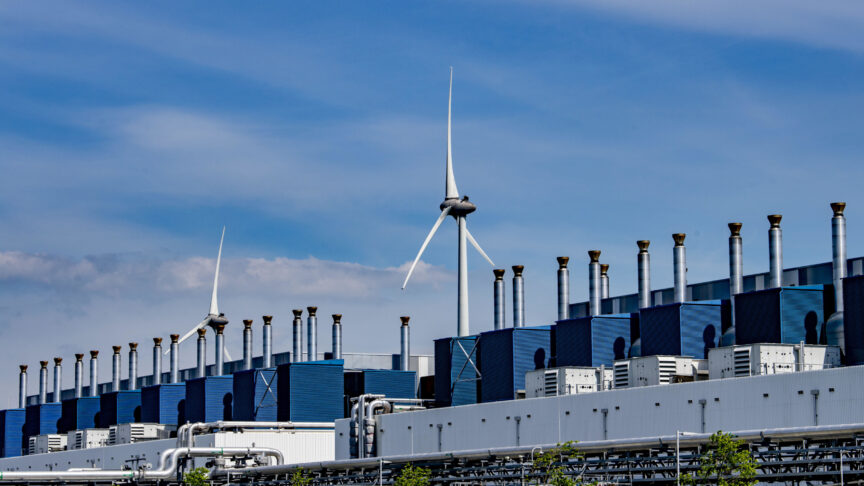
New technologies are a significant force shaping international relations. If the EU wants to be more than a mediator between the US and China, it will need to change its mindset
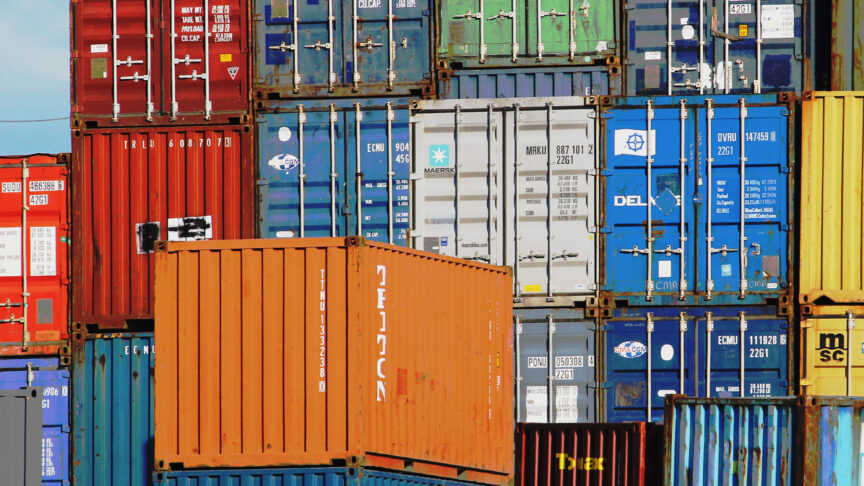
The anti-coercion instrument needs to enable countermeasures that are both effective and credible; if it does not, this could carry more risks than benefits

The EU has the ambition and potential to become a sovereign digital power, but it lacks an all-encompassing strategy for the sector, in which individual governments are still the key players
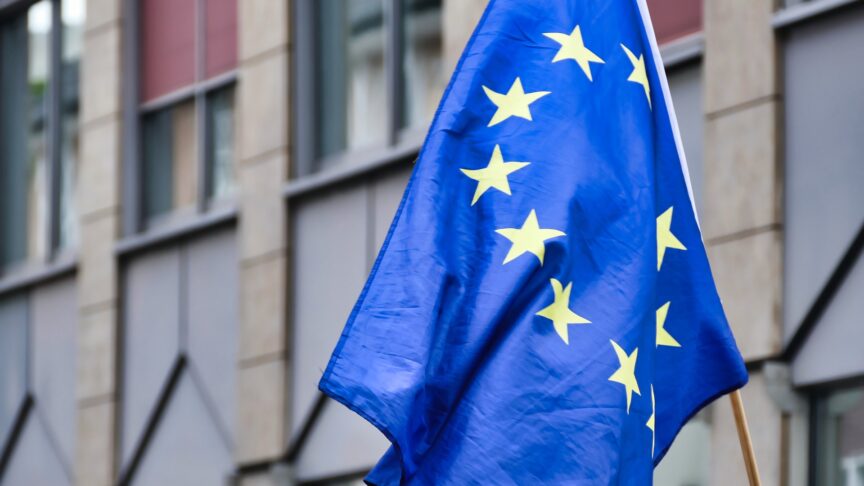
The covid-19 pandemic has brought forward a new agenda for multilateralism, focused on areas including global health, economic recovery, climate, technology, and trade
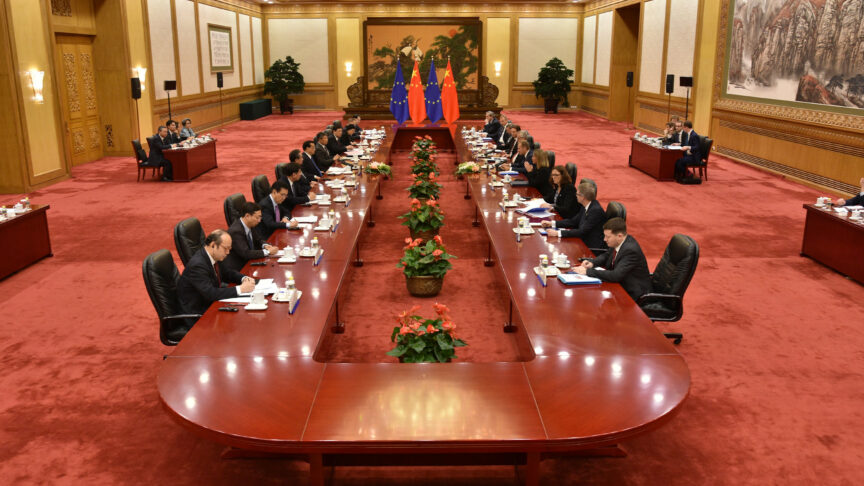
As climate action becomes more material to economic interests, Europe and China will both compete and cooperate with each other, against the backdrop of an overarching systemic rivalry

To manage in this new world, the EU and its members need to embark on a broad-based effort to recover their strategic sovereignty
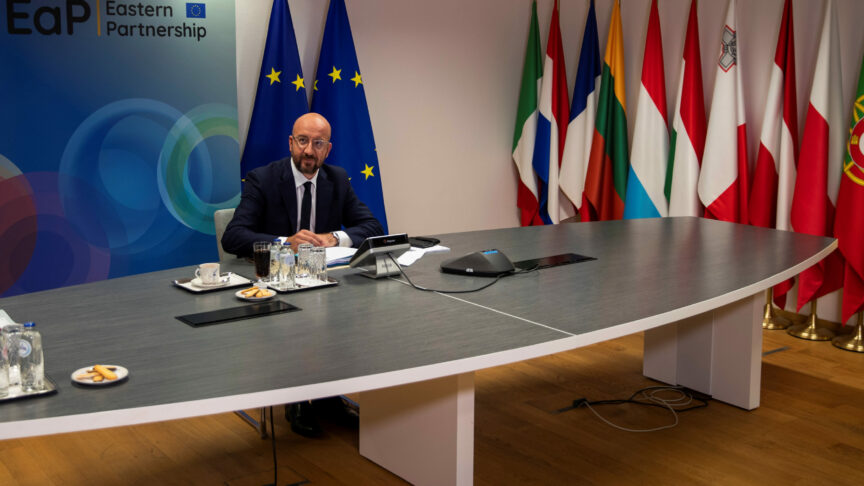
The EU’s tendency to shy away from security issues has helped make covert operations and military threats Russia’s tools of choice in the region
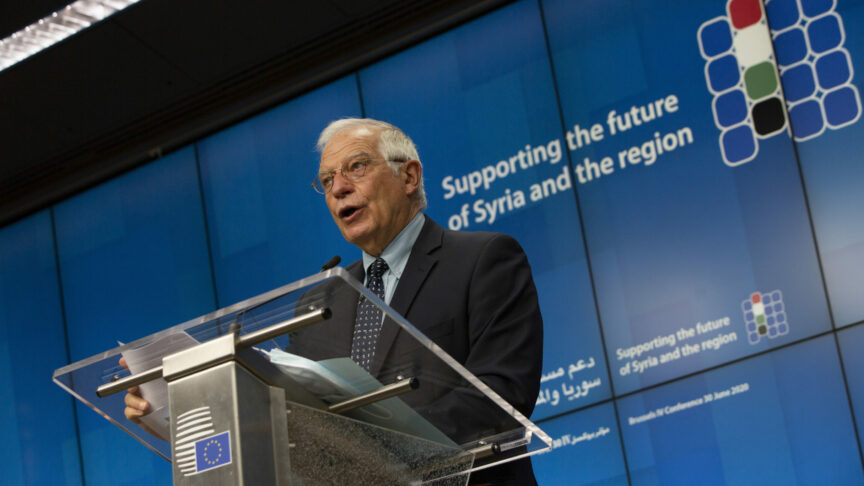
To achieve greater sovereignty, Europe needs to push back against rival powers, build leverage in armed conflicts, and be more effective in supporting reform

Since Russia’s invasion of Ukraine, the EU and its member states have intensified their energy diplomacy, moving away from Russian supplies and towards more secure – and greener – alternatives. But to do so efficiently, greater coordination at the EU-level is needed

The war in Ukraine has forced Europeans to keep the lights on through adopting a far more strategic approach to their energy security. ECFR’s Energy Deals Tracker has monitored the success of the EU’s energy diversification – and identifies challenges ahead

It is time for the EU to burnish its foreign policy credentials by setting out concrete plans for the next round of enlargement

As Europe’s leaders meet in Moldova, the potential of the European Political Community to contribute to security and foster connection across the continent is becoming ever clearer

Russia’s war in Ukraine has exposed the link between energy and security policy. Renewable energies can help Germany gain energy sovereignty – and protect itself from security threats
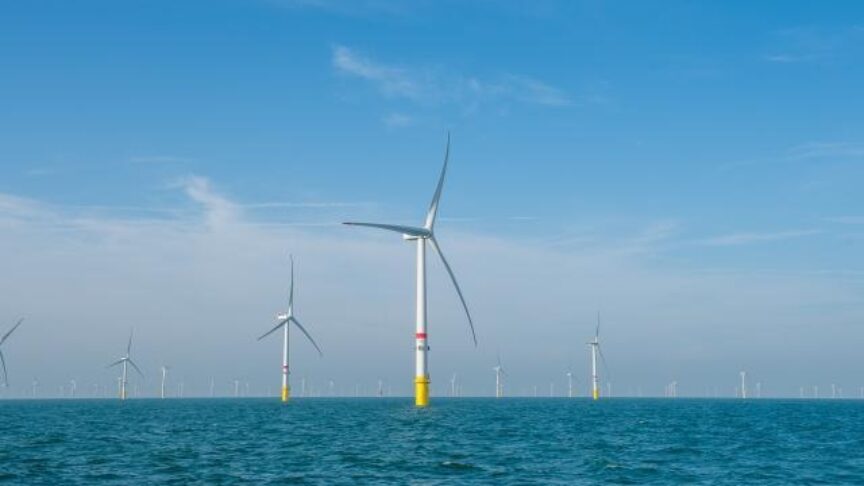
European leaders are realising that short-term fixes on gas supplies have long-term implications. They should include renewables in their deals with new suppliers to speed up the process of decarbonisation
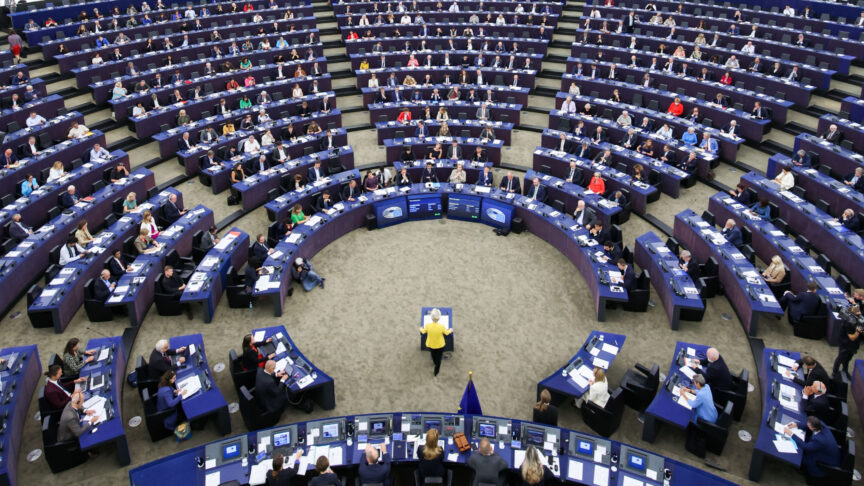
The European Commission president’s annual address has not pleased everybody – but its focus on energy reflects a deeper understanding of the nature of security today

Decades of wilfully blind dependence on Russian gas have left Germany facing a bleak winter. German leaders could now have an opportunity to begin repairing the damage
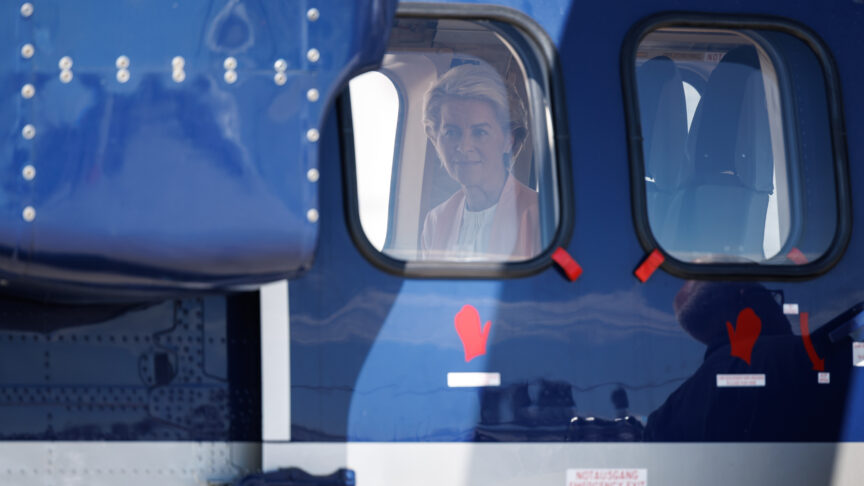
Europeans have set out on a journey towards greater economic sovereignty. They will only reach their destination if they learn to navigate an interconnected world
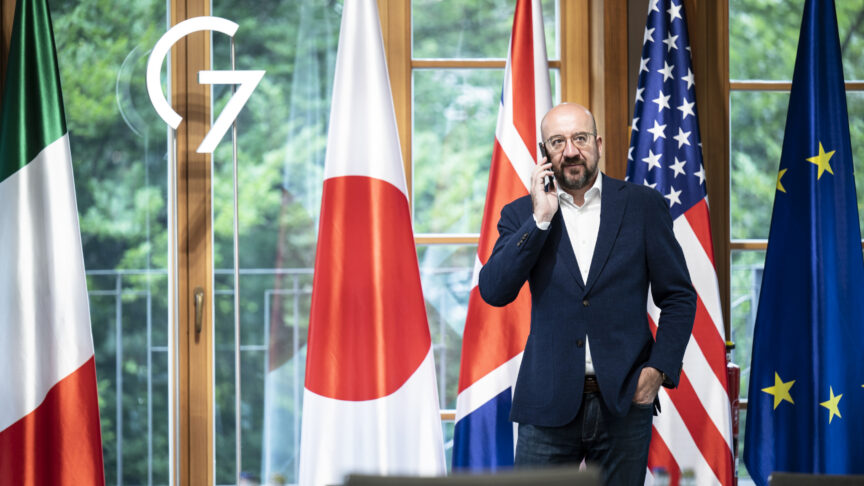
The EU has made insufficient progress in enhancing its sovereignty, particularly in security and defence. The union now needs to overcome internal differences to bolster its external ability to act
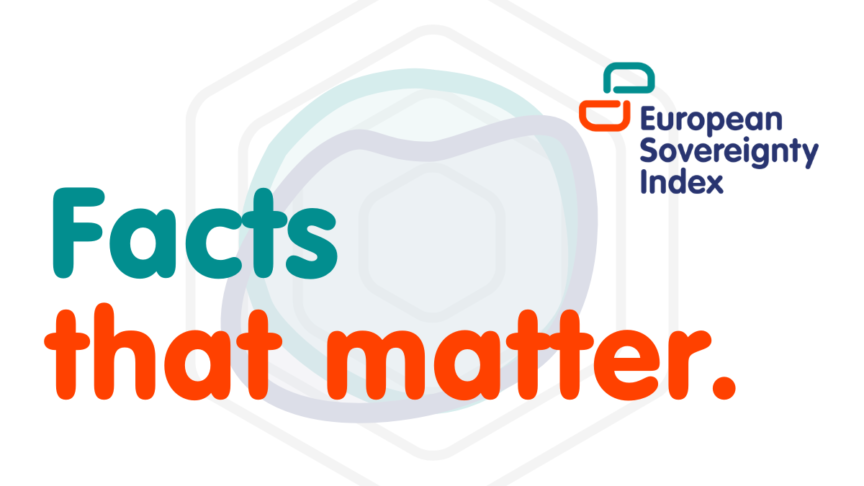
The EU can overcome the new challenges it faces and can shape the global order. To achieve this, Europeans will need to improve their joint capacity to act
To fulfil its true potential, the EU needs to end its strategic cacophony and focus on capability building

Mark Leonard welcomes Mark Malloch-Brown to discuss the future of the open society model in Europe and the world

Last week, France’s president Emmanuel Macron threw the EU bubble into turmoil by suggesting that Europe should not become the United States’ “vassal” over Taiwan
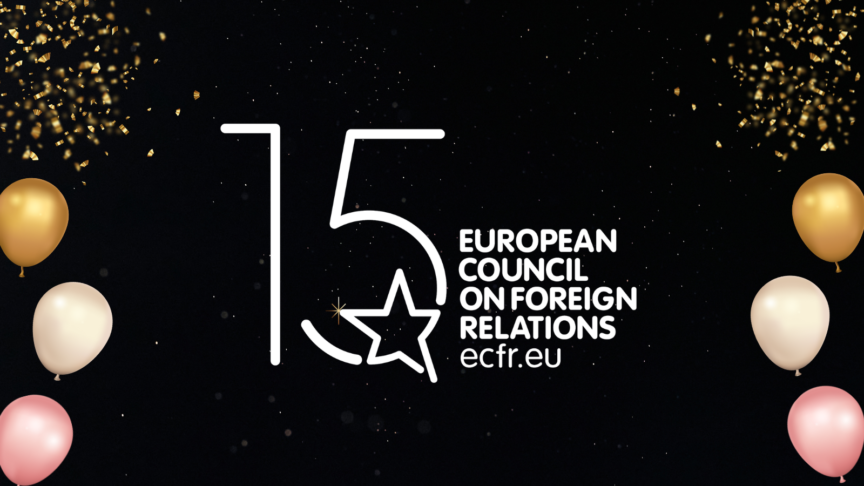
We turned 15! Time to reflect on the past years and ECFR’s role in helping Europe find a strong, united voice

How can the EU and member states close the gap between ambition and capability in their quest for European sovereignty?
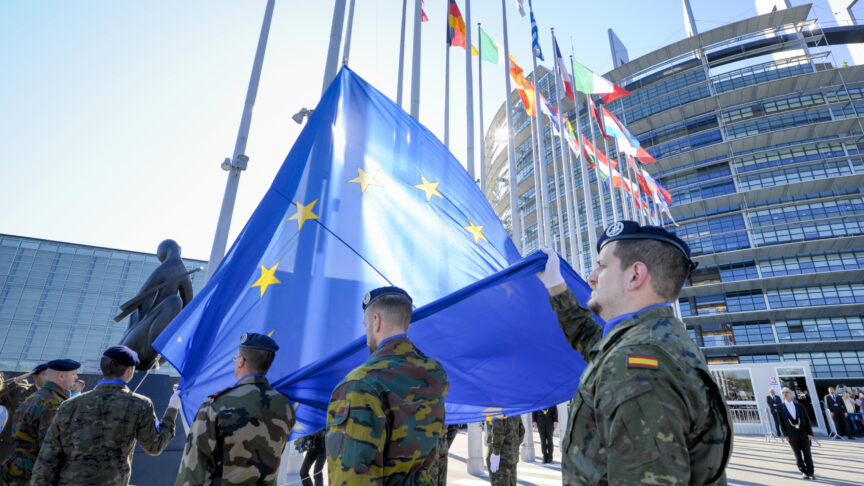
What are the biggest challenges in building greater European sovereignty in defence? And how will this effort be funded?
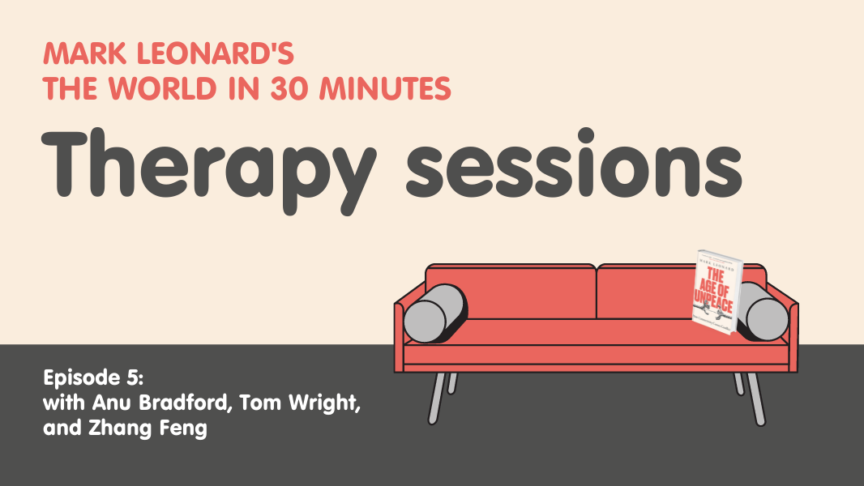
Join us on this journey to a more therapeutic approach to international relations. The mini-series brings you five special episodes with guests including today’s Anu Bradford, Thomas Wright, and Feng Zhang
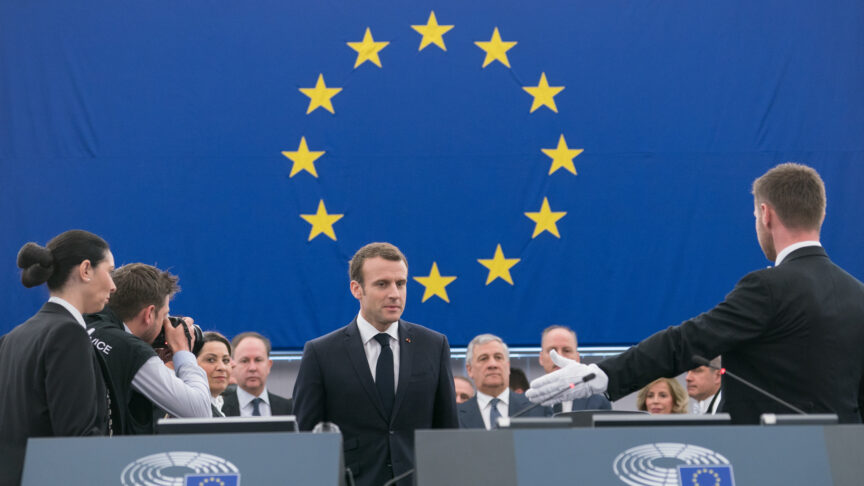
What are Macron’s plans for the EU Council presidency in 2022 and beyond?
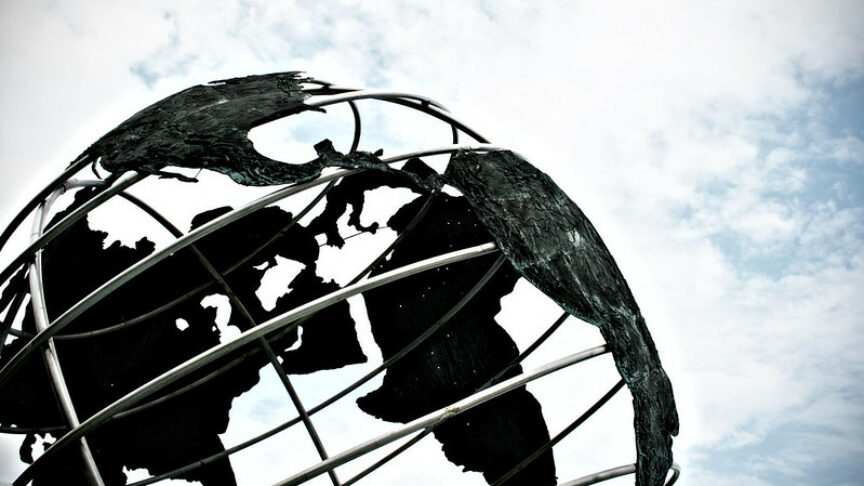
What are different models for thinking about global order? How do ideas about war shape what statesmen and -women do?
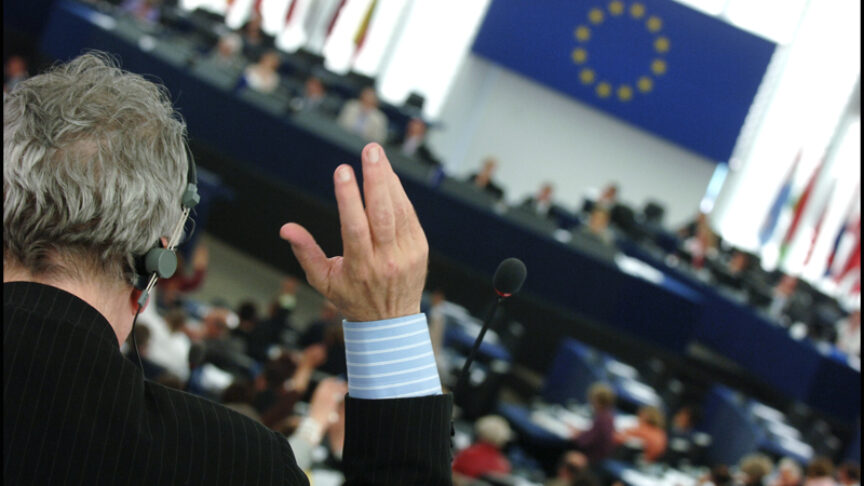
How can Europe adapt its strategies for multilateralism in this competitive world and what would they look like?
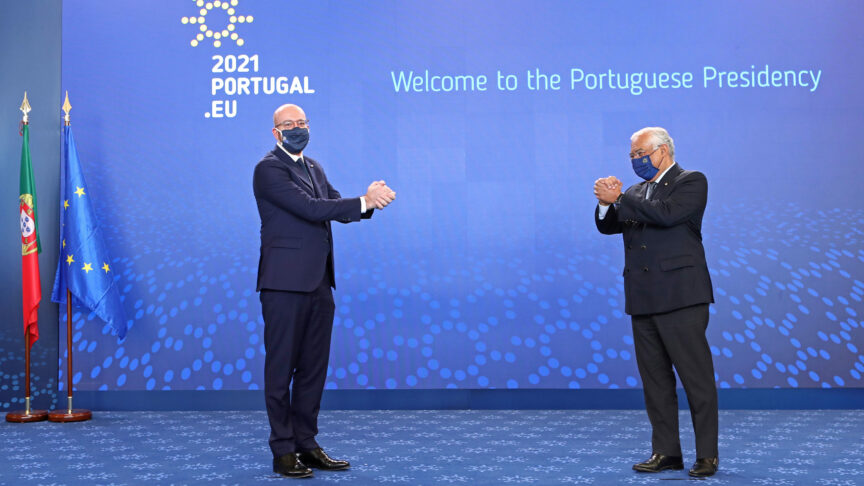
How can the Portuguese presidency strengthen European strategic autonomy?

As France discovers the new making of its national assembly, this webinar will analyse the election results and reflect on their impact on a geopolitical…

Building on the success and results of the 2023 Project “France-Italy-Germany Trilateral Dialogue: in Pursuit of a common agenda”, the 2024 Quadrilateral Project will continue to promote intra-European dialogue between capitals, extending last year’s trilateral format to Spain

Secondo appuntamento di una serie di tre working lunch realizzati congiuntamente da ECFR Roma, SDA Bocconi e l’Institute for European Policymaking @ Bocconi University
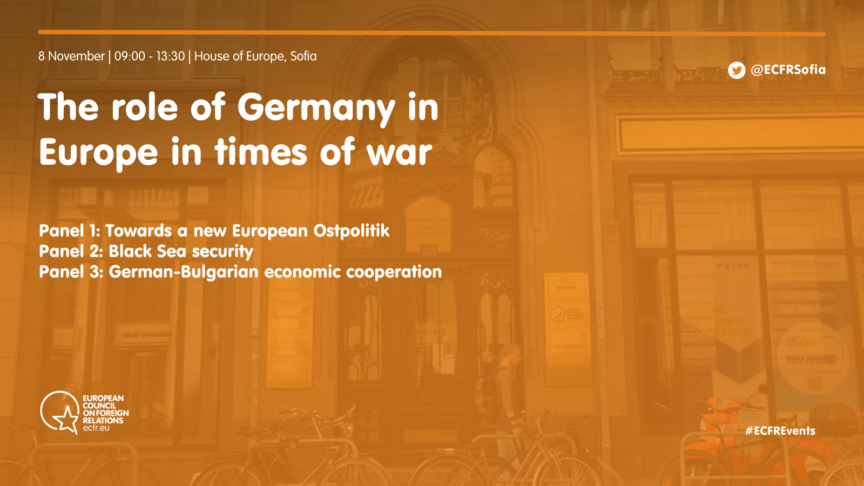
We will discuss Germany’s role in Europe and will reflect on how the new European order is viewed in Berlin
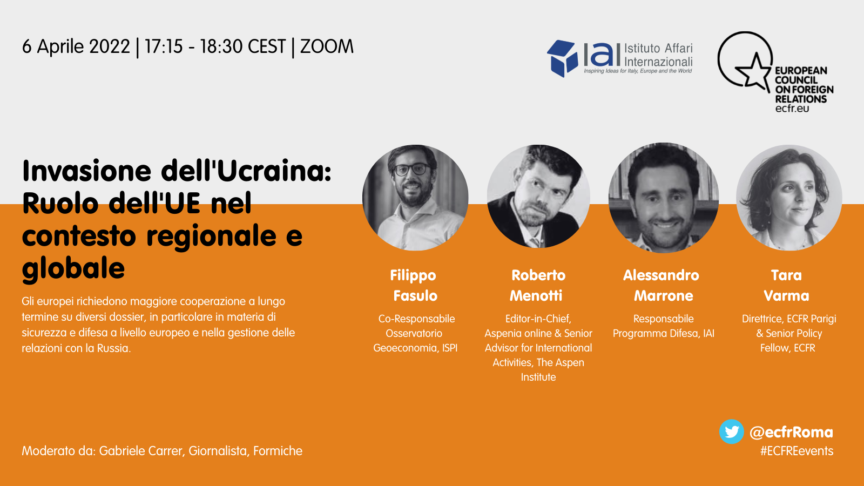
Gli europei richiedono maggiore cooperazione a lungo termine su diversi dossier, in particolare in materia di sicurezza e difesa
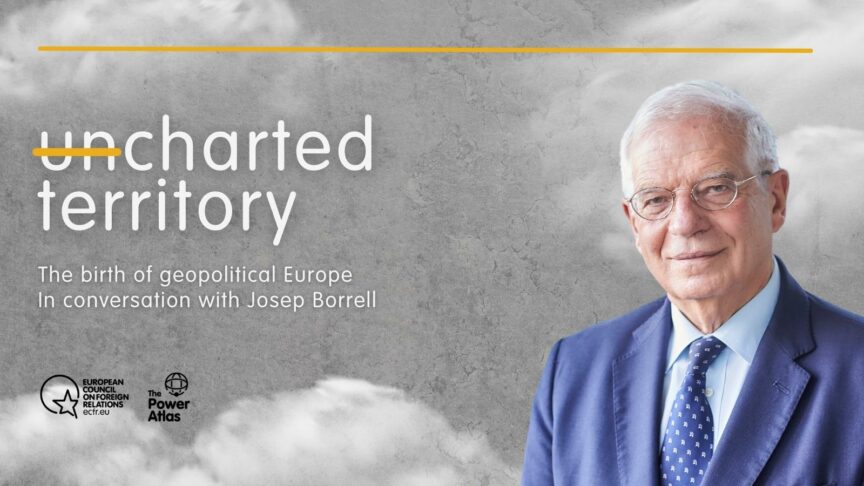
With the EU’s High Representative as our honoured guest, the panel will explore the birth of a geopolitical Europe and the new dimensions of European power with a focus on the tech, economic, and security terrains
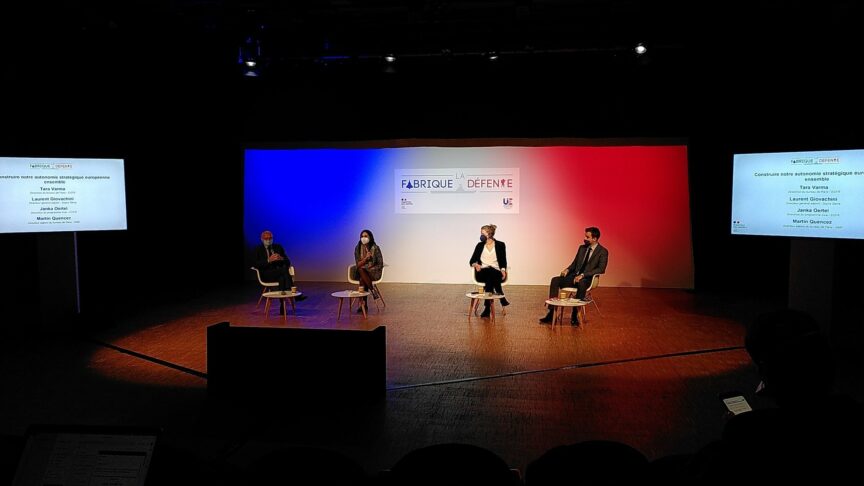
Dans le cadre de La Fabrique Défense, l’ECFR Paris présentera une table-ronde en personne
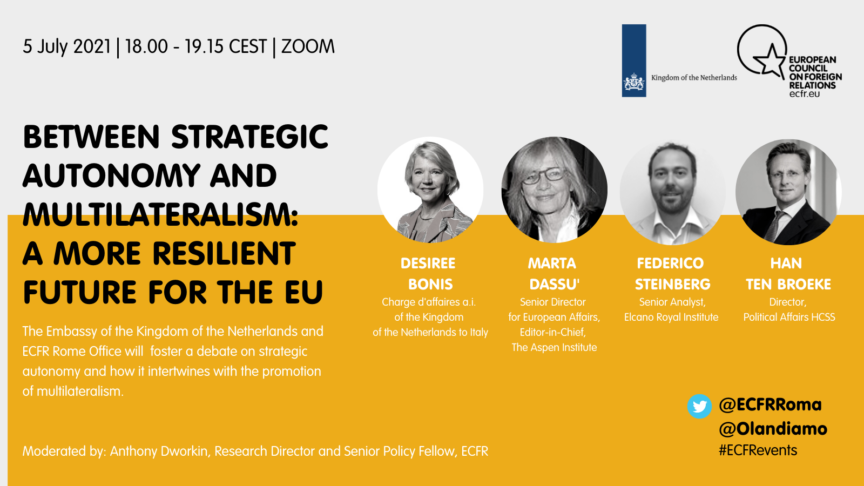
The Embassy of the Kingdom of the Netherlands and ECFR Rome Office aim at fostering a debate on strategic autonomy and how it intertwines with the promotion of multilateralism
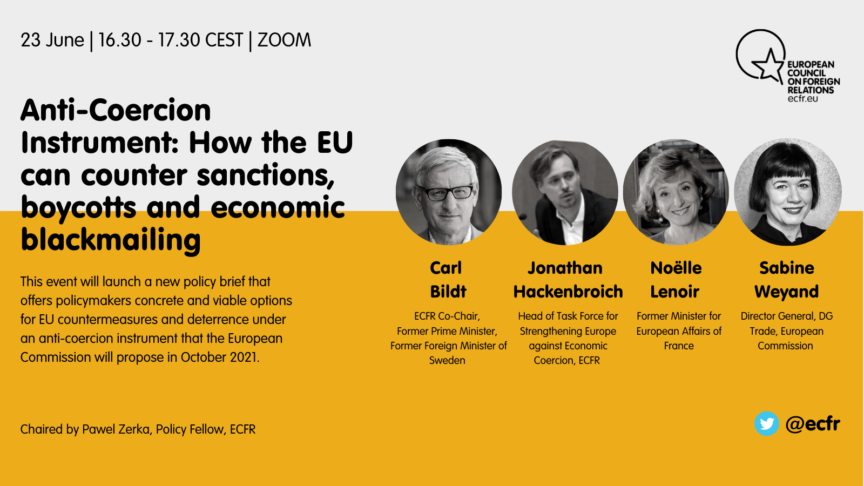
This event is the second webinar in a two-part series on current developments in the global use of economic coercion
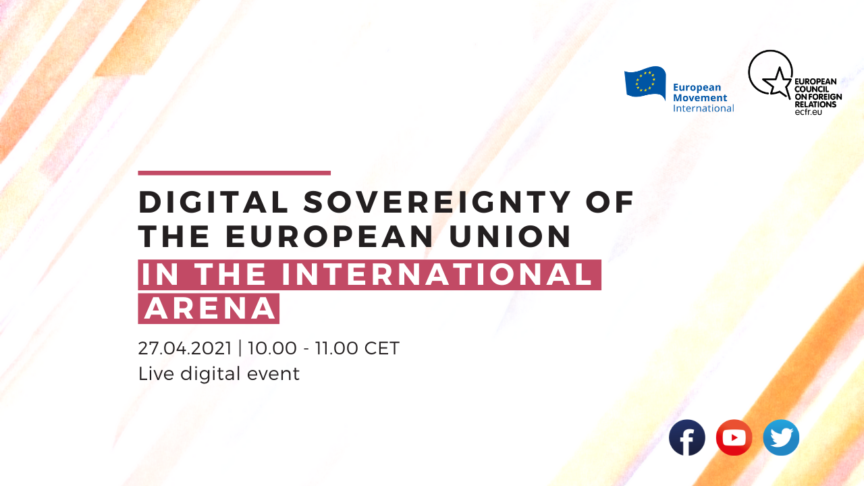
First part of a series jointly organised by the European Movement International and ECFR exploring the challenges the European Union is facing